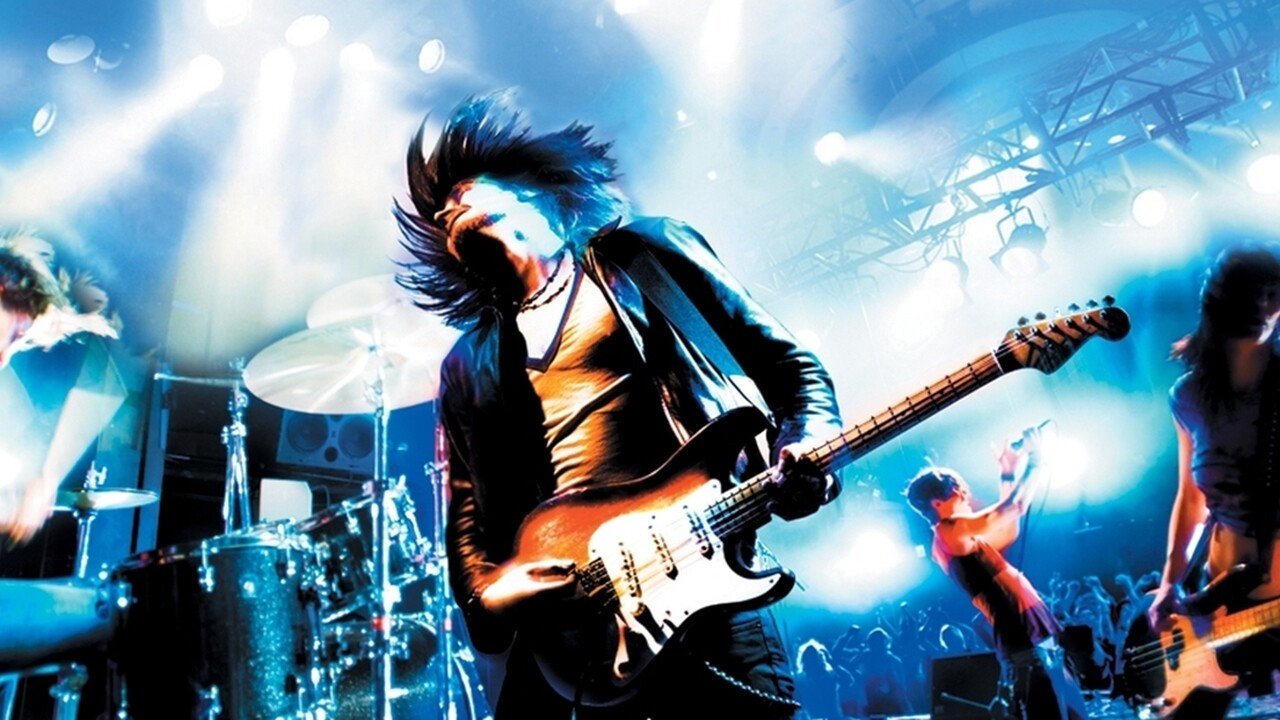Rock Band Blitz was, for me, a reminder of good times past. Loading that game up and playing through Alice Cooper’s “Poison” reminded me of how much fun it can be to interact with music. It called up images of the days when “Maps” and “Pinball Wizard” were enjoyed with a full group of people (drunk, sober, didn’t matter) who were all willing to get together for a short while and pretend, for a few minutes at a time, that they were rock stars.
These days, we don’t see so much of that. Thanks to the efforts of new interfaces like Kinect, Move and the Wii-mote, most people are more focused on dance then they are on musicianship itself. The oversaturation of the market by Activision’s Guitar Hero series exhausted an audience that was wondering just how much fake Guitar-hood someone could take on an annual basis. The release of a Van Halen-specific game and the move to DJ Hero were nails in the coffin for Activision; at that point even they had to admit that they were running out of ideas.
But even if Guitar Hero itself has gone on sabbatical, that doesn’t change the fact that at its root, there was something magical about the plastic instrument. Millions of people took to drums, guitars, microphones and even keyboards to pretend for three+ minutes that they were talented musicians that were loved by the world. That was the basic goal of the original Guitar Hero under Harmonix, and that same aspirational vibe carried over to Rock Band. The games were fun, and if you put in the time, you could even develop some real musical skills on instruments like the drum, keyboard or pro guitar, but the core appeal of these games was allowing people to live that rock fantasy, a rare offering in a medium that focused mostly on putting people in the shoes of action heroes.
Despite the retreat of Guitar Hero and rise of the dance game, that doesn’t mean that the love of music itself—or the fantasy of rock godhood—has somehow diminished today. It was a strange social phenomenon to see millions come to plastic instruments after years of niche popularity in Asia, and it was just as disorienting to see them suddenly leave, but it didn’t somehow make the music “bad” and it didn’t make the secret wish of rock stardom any less relevant. Those will always have a place in the hearts of most people.
That seems to be one of the things that Harmonix understands. Even though they haven’t announced that Rock Band 4 is coming, they also haven’t officially announced a hiatus for the series the way Activision did for Guitar Hero. The fact that Rock Band Blitz came out, using the massive library available to all RB players, shows that even if Dance Central is all the rage right now, Harmonix hasn’t forgotten The Rock.
It may be time, however, for Harmonix—and other instrument based game developers—to scale back the scope of their ambition. For the longest time in Japan and other parts of Asia, rhythm games were very much a part of the gaming scene, but they were always a smaller, niche element. Whether it was Dance Dance Revolution, Guitar Freaks or Konami’s near infinite list of Beatmania games, the genre always occupied a smaller—but very stable—place in the arcade or console collection for aficionados. There will always be a market for these sorts of games, but that market was probably meant to be a much smaller one. When Harmonix first made Guitar Hero no one at the studio thought it was going to become the pop culture phenomenon it did, hoping instead that it would simply make enough money to pay employees and meet with the same warm reception as Amplitude or Frequency. Those are still reasonable goals to pursue. If and when Rock Band 4 comes out, I think that there will still be an audience out there for it. It just won’t be in the tens of millions the way past music games were. On the other hand, there’s still something to be said for hearing the crowd scream, even singing along with the lyrics when things really get going, and that’s something that never gets old. If you’ve got the plastic instruments sitting in a closet somewhere anyway, why not?




